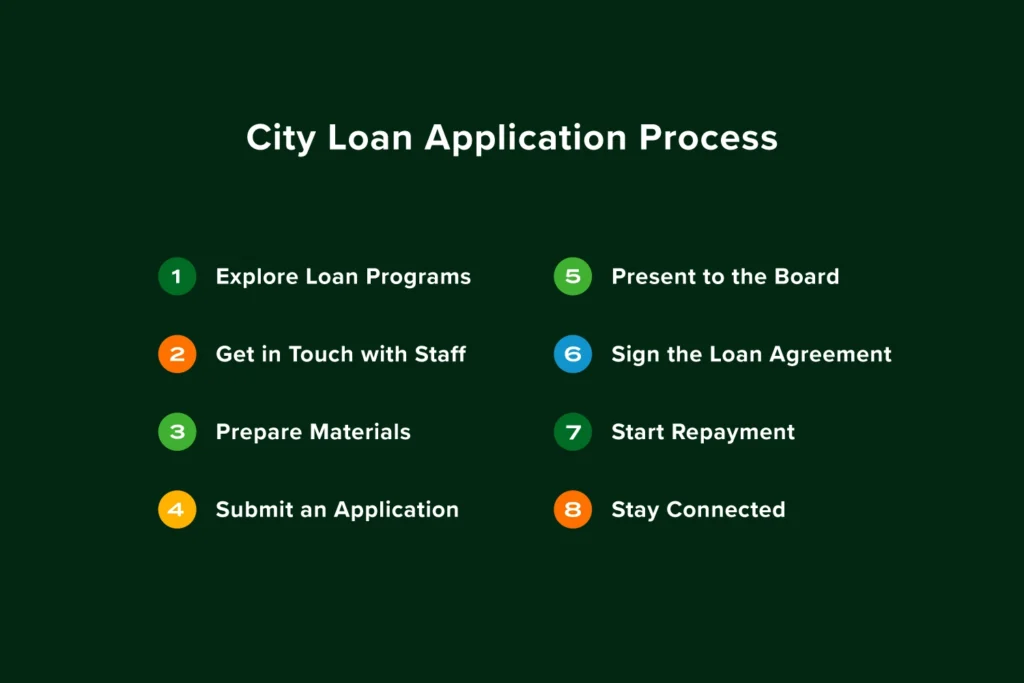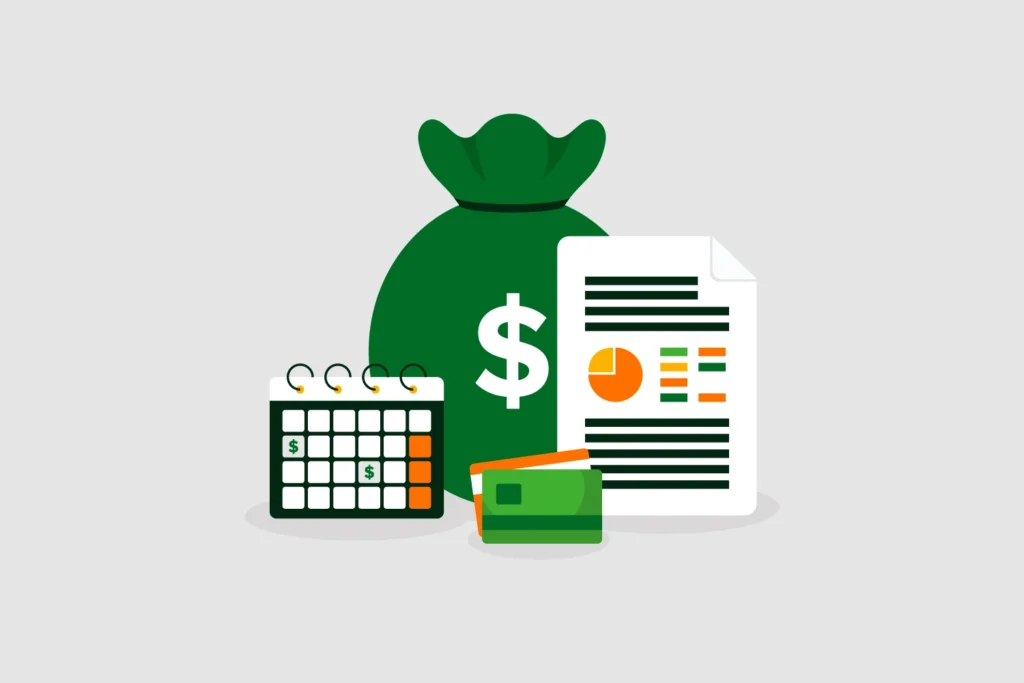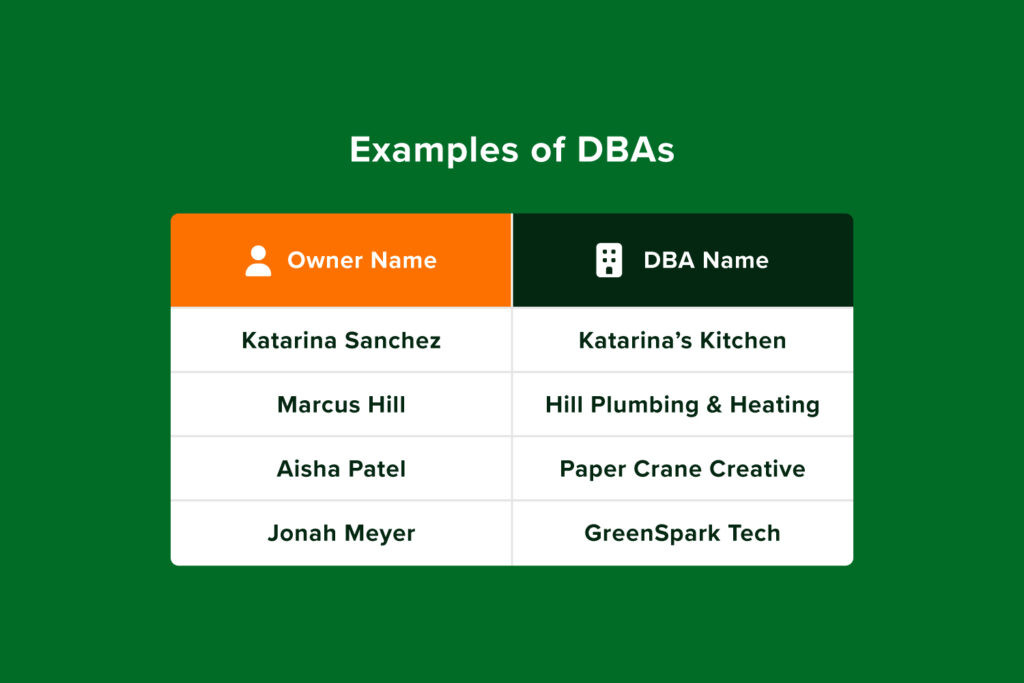Disclaimer: The articles published here on the City of Eau Claire Economic Development Division website are meant to be a helpful starting point as you explore doing business in our community. They’re not the final word on requirements or what’s best for your unique situation. We always recommend checking in with legal, financial, or other professionals for advice tailored to your business.
You’ve built something meaningful here in Eau Claire. You’re doing the everyday hustle, you know your customers, your numbers make sense, and now you find yourself pausing every so often to wonder: Am I ready to scale?
Scaling doesn’t just “make more money.” It means your business is ready for the step—growth that’s intentional, sustainable, and aligned with your long-term vision.
These ten signals can tell you whether you might be ready, plus what to check before you take the leap.
Sign #1: Your Financials Are Solid & You Understand Them
Before you even think about scaling, your numbers have to tell a clear, confident story. Growth magnifies everything, both the good and the bad, so if your books are a mess or you’re still guessing at profitability, that’s a red flag.
Being financially ready doesn’t necessarily mean you have piles of extra cash sitting around. It means you’ve built steady, predictable revenue month after month, and you know what drives it. You’ve separated one-time wins from repeatable income, you track expenses closely, you can look at your financial statements without breaking into a sweat, and so on.
In practice, this might look like:
- A few consecutive quarters of consistent profitability
- A healthy cash cushion or access to working capital for short-term needs
- Clear insight into your margins, knowing exactly how much it costs to deliver your product or service
- An ability to forecast, if sales doubled next quarter, how it affects staffing, supply costs, and cash flow
Instead of taking a guess yourself, consider sitting down with a local accountant or financial advisor who understands the regional business landscape. They can help you stress-test your projections before you make that next big investment, whether it’s expanding production, hiring new staff, or leasing a second space, for example.
Scaling should feel like a confident step forward, not a financial gamble. When your numbers are stable and you know exactly how growth will ripple through your budget, you’re ready to scale wisely.
Sign #2: Your Market Signals Are Green
Growth only makes sense when your customers are asking for it loudly, consistently, and with their wallets. The best signal you can get isn’t a hunch; it’s data and customer behavior that say, “We’re ready for more.”
Maybe you’ve noticed your regulars are doubling up on orders, your services are booked out weeks in advance, or you’re turning away work because you physically can’t keep up. Maybe your product sells out at local markets before noon, or you’re fielding messages from customers in nearby cities asking, “When are you expanding here?” Those are all flashing green lights that your market wants more of what you’re offering.
If you’re not sure, now’s the time to test. Conduct short surveys, run a pilot program, or analyze your customer data—what’s selling fastest, who’s buying repeatedly, what’s driving new leads. Eau Claire’s size and tight-knit, responsive community vibe can help you gauge market appetite quickly, maybe through social media posts, events, or a few well-placed conversations.
Scaling without market validation might make your business look impressive for a second, but instead of growing, you’re likely to crash fast. When your demand is steady and on an upward trajectory through word-of-mouth, digital traffic, or regional buzz, you’ve got proof that your next move isn’t speculation. It’s simply meeting a need that already exists.
In short, when Eau Claire’s market starts pulling you forward instead of you pushing uphill, that’s when you know it’s likely time to hit the gas.
Sign #3: You’ve Found a Reliable Process
Before you scale, you need a repeatable system because a reliable process is what turns a scrappy startup into a sustainable business. It’s the difference between hustling harder and working smarter.
You’ll know you’ve hit this stage when your day-to-day doesn’t depend entirely on you. Orders get fulfilled accurately even when you’re out of the office. New hires can step in without chaos. Customer inquiries are handled consistently. Whether it’s how you manage inventory, schedule clients, or onboard team members, there’s a rhythm to it all, and it works.
Most business owners don’t realize this, but scaling doesn’t fix disorganization. It amplifies it. If you’re still putting out small fires every day, it’s not time to scale yet. On the other hand, if your business can run smoothly even on a day you take off, that’s a strong signal that your systems are ready for more volume. Many growing businesses reach this point after formalizing everything that used to live in your head—documenting workflows, building templates, investing in tools that keeps everyone aligned, and so on. When your processes are clear and teachable, you can delegate without losing quality.
As you prepare, keep in mind that scaling is doing what already works, just at a larger scale. Once your operations can hum along without constant oversight, you’re on your way to building one that can grow.
Sign #4: Your Operations Can Handle It
Before you scale, take a hard look under the hood. Can your current setup truly handle more business, or are you already pushing it to its limits? Growth is about whether your operations can keep up without breaking.
This means asking some uncomfortable but essential questions:
- Can your suppliers deliver reliably if orders double?
- Do you have enough staff or cross-trained employees to handle peak times?
- Is your space big enough, or would another location make more sense?
Sometimes, scaling doesn’t require a brand-new facility, and you can grow by streamlining what you already have. But other times, it’s clear you’ve outgrown your environment and need to expand to keep quality and morale intact. That might mean exploring opportunities in Eau Claire’s business parks or checking redevelopment districts for properties where adaptive reuse projects offer flexible commercial space.
Operational readiness also extends to your systems and tools. If your inventory is tracked with clunky spreadsheets, your project management is handled by email chains, or your tech is duct-taped together, those cracks will widen as you grow. Investing in the right software, equipment, vendor partnerships, and other infrastructure before scaling saves future headaches and customer complaints.
Scaling should feel like stretching, not snapping. When your operations have enough structure and flexibility to absorb growth without bottlenecks or constant scrambling, you’ve built the foundation that true scalability rests on.
Sign #5: Your Team Can Step Up
No matter how talented you are, scaling isn’t a solo sport. Growth adds layers—more customers, more decisions, more moving parts—and at some point, you’ll hit a ceiling if everything still depends on you. So, that means the real question is: Do you have a team that can carry the load with you?
You’ll know you’re getting close when you can confidently step away for an extended amount of time and your business keeps running smoothly. That’s a sign you’ve built trust and systems that empower others. If you’ve got employees or contractors who take initiative, make sound decisions, and know their responsibilities, you’ve got the foundation of a scalable team.
Preparation is key here. When the time comes to hire more people, you’ll need to have already built clarity and culture before you expand. That involves:
- Documenting key processes well so new hires don’t have to start from scratch
- Training your current team members to handle new responsibilities
- Giving staff the autonomy to make small decisions without waiting for your approval
If you need help with training, you’re not short on resources to strengthen your team. Programs through local workforce development partners can help with leadership training, internship pipelines, upskilling, and outsourcing. And you can also tap into regional networks to find experienced professionals ready to grow with a local company like yours.
The most successful businesses in the Chippewa Valley tend to have one thing in common: strong teams built on mutual trust and shared purpose. When your staff not only keeps up but drives your momentum, that’s your cue that you’ve leveled up to leading a business that’s ready to grow.
Sign #6: You Have the Capital or Access to It
Scaling is rarely cheap. If you’ll be doing anything from hiring more staff and upgrading equipment to renovating a space so you can launch a new location, you’ll need capital to fuel that growth. The good news is you don’t necessarily have to bankroll it all yourself; you just need a clear plan for how you’ll access and manage the funds responsibly.
There are two types of readiness here: financial and strategic. Financial readiness means your business is profitable enough to reinvest earnings or secure outside financing. Strategic readiness means you’ve thought through how much money you actually need, where it’ll come from, how quickly it will start paying off, etc. Without that plan, you might get moving, but you won’t get far.
Thankfully, in Eau Claire, there are already resources out there that are designed to support small business growth. Regional banks often partner with growing businesses on financing solutions that fit their stage of growth. Meanwhile, the City of Eau Claire Economic Development Division (That’s us!) and Regional Business Fund administer loan programs that help with fill the gap with expansion costs, while also connecting you with other partners that make the growth process smoother.
Before you explore financing, take time to understand options and how each impacts your cash flow. Consider making an appointment with the UW-Eau Claire Small Business Development Center (SBDC) to work on projections; these can help show how the investment will generate returns and how you’ll manage debt or equity commitments.
No matter what, scaling shouldn’t leave you scrambling to cover bills or over-leveraged on debt. When your financial base is strong, your projections are realistic, and you’ve lined up the right funding partners, you’ll be prepared to make growth happen sustainably.
Sign #7: You Know How to Measure Success Metrics
Scaling without having metrics is like driving through Eau Claire in a snowstorm without headlights. You might keep moving, but you won’t know if you’re on the right road until you hit a ditch. In other words, the bigger your business grows, the more important it becomes to track the numbers that actually reflect performance, not just busy activity.
Key performance indicators (or KPIs) are your business’s dashboard. They tell you if what you’re doing is working and where you’re veering off course. The exact metrics depend on your industry, but some of the most common ones for growing businesses include:
- Customer Acquisition Cost (CAC): How much you spend to gain a new customer
- Customer Lifetime Value (CLV): How much each customer brings in over time
- Gross Margin: The difference between what it costs to make or deliver your product and what you sell it for
- Employee Productivity or Utilization Rates: How efficiently your team’s time turns into revenue
- Cash Flow Forecasts: Whether the money coming in can support the money going out as you grow
When you track these consistently, trends emerge, and those trends help you make better, faster decisions. For instance, if your marketing spend is up but new customer growth is flat, you know to adjust. If your margins shrink as volume increases, that’s a red flag that your operational costs aren’t scaling efficiently.
The takeaway: Growth is about knowing what’s working as you do more. When you’ve got clear metrics guiding your decisions, scaling stops being guesswork and becomes strategy.
Sign #8: You’ve Got Room to Grow Locally or Regionally
Scaling isn’t just deciding on a whim that you want to grow your business; you need to have clear, realistic room to do so. That means there’s genuine demand you haven’t yet tapped into, whether it’s a new neighborhood or an emerging market trend. What matters is that, before expanding, you know exactly where your next opportunity lies and why it makes sense.
In Eau Claire, those opportunities can take many forms. Maybe your café has a loyal following downtown, but you’re constantly hearing from customers in the Oakwood Hills area or the west side asking for a closer option. Maybe your professional services business has maxed out local capacity but could easily expand into regional markets like Chippewa Falls, Menomonie, or even the Twin Cities metro. Or for manufacturers and product-based businesses, it might mean leveraging Eau Claire’s strategic position along major transportation routes to reach more of the Midwest.
You can also think in terms of vertical or horizontal growth. Vertical growth might mean introducing complementary products or services that meet existing customer needs, like a salon adding a retail line of hair care products or a landscaping company adding snow removal. Horizontal growth means expanding your footprint, such as opening another location, hiring regional sales reps, or partnering with nearby retailers to carry your products.
The key is to validate your assumptions before investing heavily. Study local demographics, track your sales by ZIP code, talk to repeat customers about where else they’d like to see you, keep an eye on economic development projects across the region, and so on. New housing developments, downtown revitalization efforts, university expansions in Eau Claire—these often signal fresh opportunities for entrepreneurs who are paying attention.
When you have a defined path forward (e.g. “We’re opening our second shop on Water Street next spring” or “We’re launching delivery service across western Wisconsin”), you’re not just expanding at random. You’re scaling strategically, in sync with real market demand. That’s how businesses in Eau Claire grow smart instead of just bigger.
Sign #9: You’re Ready for Bigger Organizational Challenges
Scaling your business means growth in complexity. The more you expand, the more moving parts there are to coordinate, and the role you play as the owner begins to change. You shift from being in the business to working on the business—stepping into the world of leadership and strategy instead of daily operations.
You’ll likely find that shift isn’t always easy for owners. Managing one location and one team is one thing; juggling multiple sites, overlapping schedules, new layers of communication, and so on is another. Suddenly you’re not just overseeing customer satisfaction; you’re making decisions that affect dozens of people who are managed by someone other than you. That requires a new kind of adaptability.
If you’re already embracing strategic thinking, from delegating more, planning quarterly goals, and hosting regular check-ins to building out a leadership team, you’re probably ready for what’s next. You’ve learned how to let go of some control without losing your business’s personality or quality. You’ve also started creating structure: defined roles, documented processes, clear expectations.
This stage can be deeply rewarding because it’s the moment your business becomes an engine, running because of the team and systems you’ve built. On the other hand, if you find yourself clinging to every task or dreading the idea of stepping back, it’s worth taking time to plan your transition. Growth requires leadership and readiness for the weight that comes with it.
When you can confidently say, “I trust my people, I understand my systems, I’m ready to steer the ship instead of row it,” that’s the clearest sign you’re ready for bigger organizational challenges and ready to scale.
Sign #10: You’re Clear on Why You’re Scaling
Before you make any big moves, stop and ask yourself the simplest and hardest question: Why am I scaling?
It’s tempting to chase growth for its own sake. You see competitors expanding, your peers are hiring, or you feel like it’s the “next logical step.” But scaling without a clear purpose might not get you where you want to end up.
A strong “why” grounds every decision you’ll make as you grow. Your reason could be deeply personal—you want to create local jobs, mentor the next generation, build a legacy that lasts beyond you. Or it could be strategic—you’ve spotted unmet demand in Eau Claire or across the Chippewa Valley and see a clear opportunity to fill it. Or maybe it’s about stability—you’re scaling to reduce dependency on one income stream or to create a business that can operate without you at the center of every decision.
When your “why” is clear, it then becomes your filter for saying yes or no. You’ll know when an expansion opportunity aligns with your mission and when it’s just a distraction. For instance, a café owner might choose to open a second location not because “bigger is better,” but because it helps reach a new neighborhood underserved by local gathering spaces. Or a service provider might scale up not to chase volume, but to create more consistent hours and benefits for their growing team.
Eau Claire entrepreneurs, in particular, tend to thrive when their growth ties back to purpose, such as community connection, sustainability, regional impact. Scaling with that mindset ensures your expansion strengthens both your business and the ecosystem around it. And articulating your motivation clearly to yourself, your team, your customers, even your lender will guide you through the ups and downs of expansion, helping every next step feel not just bigger, but right.
Summing It Up
Scaling can be an adventure. It means more opportunity, yes, but also more complexity and more things that can slip if you’re not prepared. Using Eau Claire’s local strengths, like our community support, regional networks, and friendly business ecosystem, plus these readiness signals gives you a much better shot at growing well.
Article Cover Illustration by Freepik





